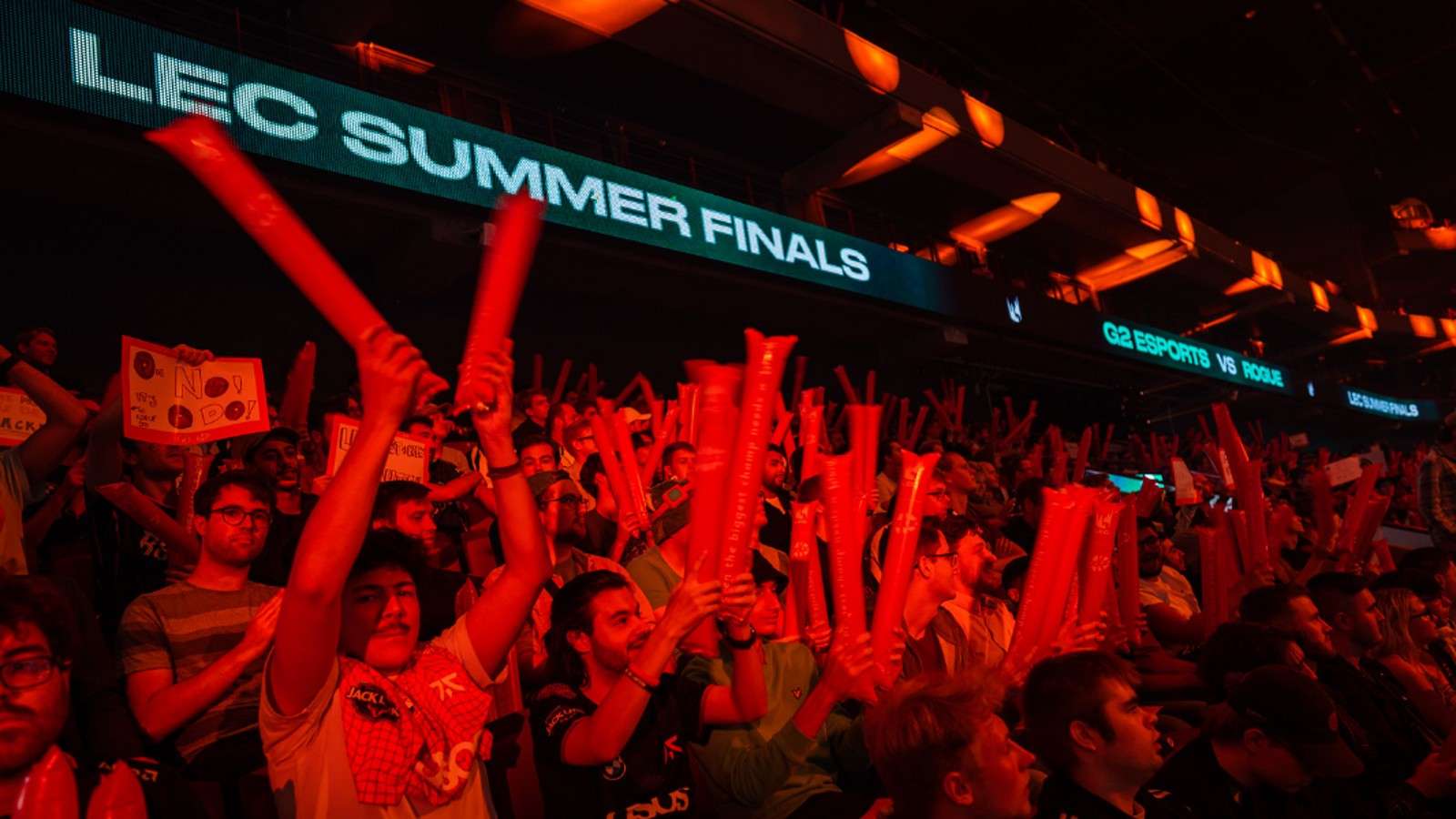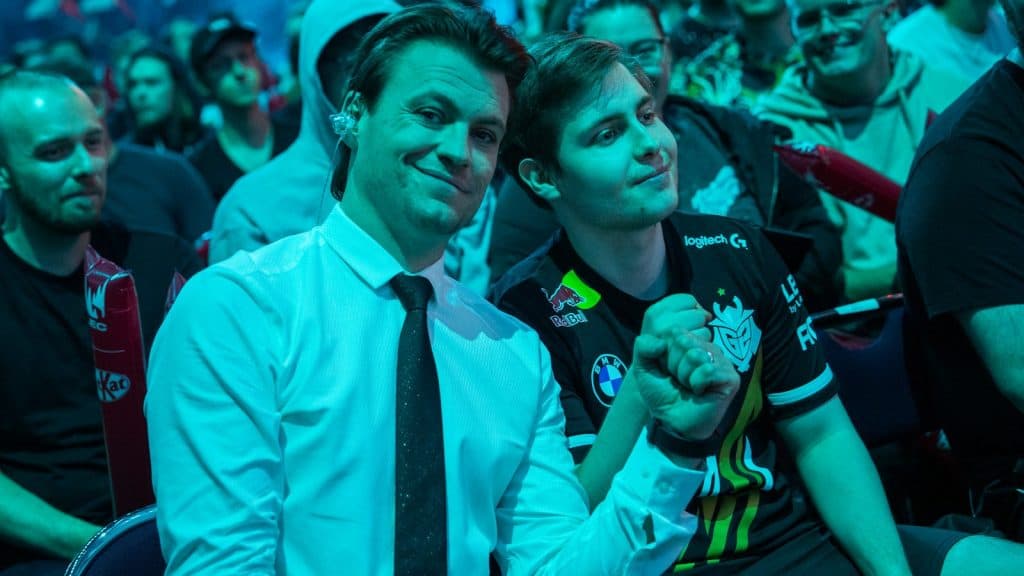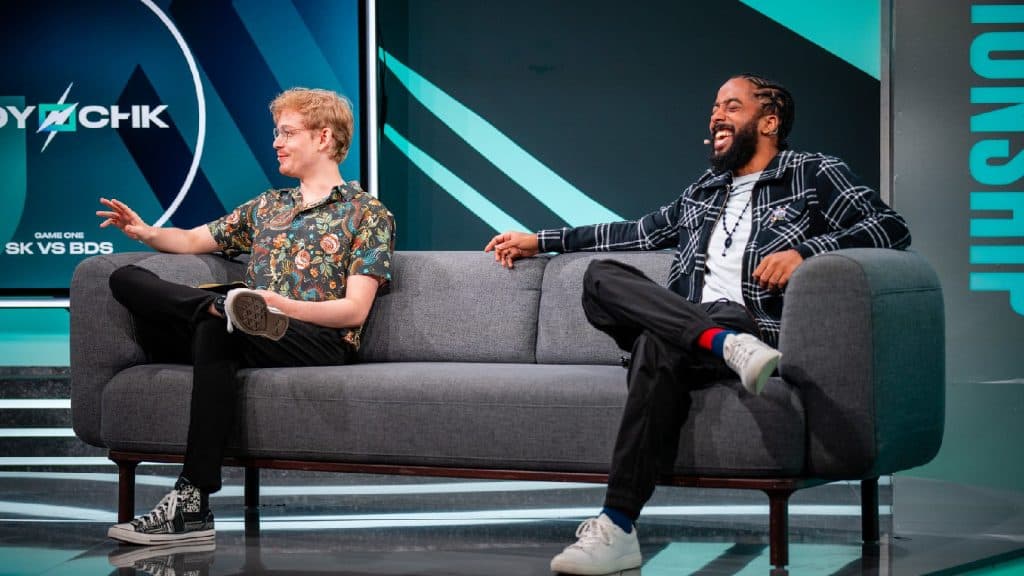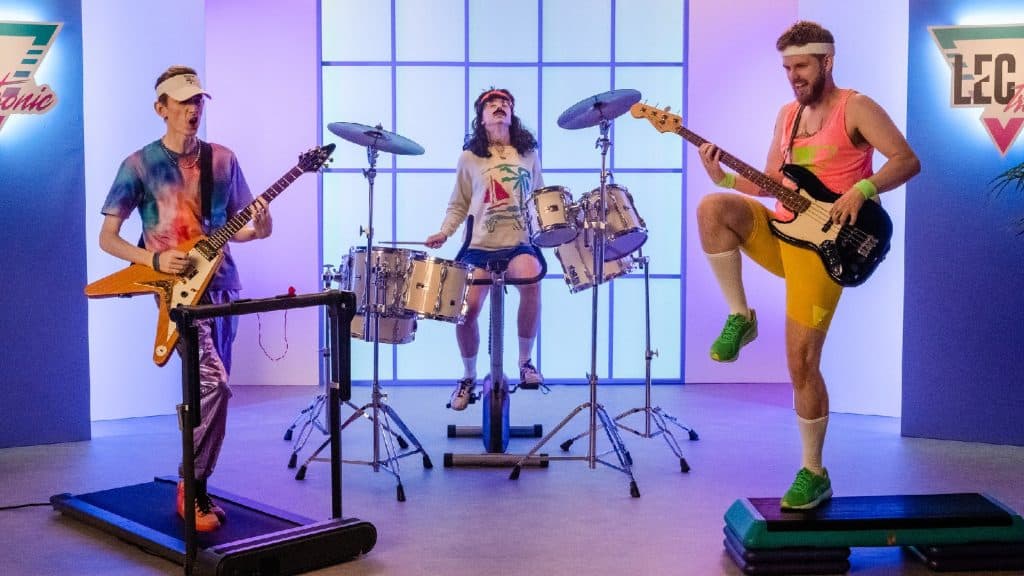What does the future of the LEC look like?
 Wojciech Wandzel/Riot Games
Wojciech Wandzel/Riot GamesWe spoke to LEC veteran Quickshot and Riot Games’ head of League Esports EMEA to get some insights on where they see the LEC heading in the next few years.
The LEC is more than just a competitive League of Legends tournament.
It’s an entertainment product — and ever since its rebrand from the EU LCS back in 2019, it’s been leading the charge in innovative content both on and off the broadcast. On the gameplay side, it has brought innovative meta picks and some of the greatest players to ever play the game — including arguably the two greatest Western mid laners of all time.
But as the esports industry continues to expand at an unprecedented rate, the LEC’s future is uncertain. The rapid viewership growth of 2020 and 2021 has turned into a slow decline, and the region’s international performances have failed to match the incredible heights of back-to-back Worlds finals appearances in 2018 and 2019.
The LEC is still an incredible product, but it’s not the indestructible industry leader that it was prophesied to be. It’s fallible — content pieces have fallen short, organizations have come and gone — but that homegrown feeling is part of what makes it so appealing to its viewers.
We spoke to Trevor ‘Quickshot’ Henry, one of the LEC’s most veteran talents, and Maximilian Schmidt, Riot Games’ head of League Esports EMEA, about the future of the league and how they’re continuing to innovate in the uncertain climate of esports broadcasting. While they know that the future isn’t guaranteed, the general attitude towards the LEC’s future is one of growth — and acceptance that fluctuating viewership is a fact of life.
Back to arena competition
 Michal Konkol/Riot Games
Michal Konkol/Riot GamesThe crown jewel of the LEC’s 2022 run was its Summer final, the first arena event for the league since 2019. Fans filled every seat in Sweden’s Malmö Arena to witness Rogue win their first-ever domestic title, with an atmosphere that Quickshot defined as “incredible”.
“There are no words to describe how happy I am,” he said. “It’s been three years, and I didn’t realize quite how much I loved being around fans — until the Spring split, when we had fans back in the arena and on the first day I legitimately phoned my wife and cried.”
He’s not the only one who is overjoyed at the return of roadshows. Fans have been sorely missing in-person esports events for the past few years as the global health crisis has kept the majority of competitions online.
The Summer split saw a return to in-person finals events for both the LEC and the LCS — and even though online events are both cheaper and easier to put on, Schmidt explained that the LEC and esports as a whole were “not anywhere close” to being able to rely entirely on online competition.
“I think there’s a possibility of esports without it, but I don’t think that we are anywhere close to that at this point in time,” the Riot executive said. “I don’t think that it’s something that a lot of our energy goes into evaluating because we believe that what we create here with these arena events is magical.”
He went on to explain that roadshows remain a “key part” of the LEC’s future plans. So worry not, LEC fans — after a few years of heartbreak, arena finals are here to stay.
Competing viewership in Europe
 Michal Konkol/Riot Games
Michal Konkol/Riot GamesIn its early days, the EU LCS enjoyed a fairly uncontested amount of attention from fans. Unlike in other esports, it was a consistent weekly presence — meaning that it enjoyed a consistent level of growth throughout its lifespan and into the LEC days.
But now, it has got some competition. The European Regional Leagues (ERLs) have seen an unprecedented level of growth in the past few years, even more so with the ever-growing popularity of regional organizations like KOI and Karmine Corp. According to Schmidt, this competition is something that the LEC is aware of but not worried about.
“It’s fair to say that they compete with each other to a certain extent,” he explained, “but we set up that ecosystem with the aim of making sure the ERLs had a key part in it. When we removed the Challenger series back in the day, we wanted to ensure that we still had a model in place to foster talent and grow it locally – and I think the LEC final between MAD and Rogue in Spring 2021, where seven of the ten finalists were EU Masters graduates, is proof that that system is working.”
But even though Schmidt isn’t concerned about competing for eyeballs with other Riot EMEA tournaments, the fact is that the LEC’s viewership has been dropping since 2020. It’ll peak at the start of a split and then slowly drop off over the following eight weeks. Additionally, that peak is getting lower and lower.
This is something that the LEC was prepared for. Schmidt explained that the LEC has known from the moment viewership hit an all-time high in 2020 that they would have to “pay some of that growth back”. The opening day of Summer 2022 had the lowest first-day viewership since 2020 at only 190,000.
“Going into 2020, we were one of the only competitions that were still happening across both traditional sports and esports,” he said. “So it’s pretty normal that over time, it becomes more and more challenging to maintain that viewership when people can suddenly go out again.”
Schmidt said that both sponsors and partnered teams were made aware that the viewership boom would not last, and that even despite the decline, viewership has remained at a sustainable level throughout 2021 and 2022. In terms of what that means for the LEC’s future, it has essentially moved the region back to where it was before the world went into lockdown.
The lockdown boosted viewership far beyond what could have been expected, setting some unrealistic expectations for future growth. But Schmidt affirms that the LEC is doing just fine.
What lies ahead for the LEC, and European League as a whole?
 Oliver Wolff/Riot Games
Oliver Wolff/Riot GamesThe LEC is changing, and rapidly. A new generation of talent is stepping up to the plate to join one of the most beloved broadcast teams in the industry. And spearheading that new generation of talent are Quickshot and Eefje ‘Sjokz’ Depoortere — a pairing that Quickshot describes as the “mom and dad of the talent team”.
“Just look at the next wave of ERL players that are winning EU Masters and coming to the LEC,” Quickshot said. “We’re in this period of the next generation, the next wave of broadcasters who will bring us into the next decade. Sjokz and I have got ten years of great experience, and we get to look at this new generation of talent pushing us forward into whatever the next decade will be.”
It’s not just the broadcast talent that is entering a new era. The LEC’s viewers are growing up with the broadcast, and that’s something Quickshot is mindful of when it comes to content.
Although “weaponized cringe” has been a mainstay of the region for the past few years with content like the Rap Battles and LECtronic music videos, he’s mindful that content will need to evolve to keep up with the fan base.
“It’s a safe prediction to make that the LEC’s content is likely going to evolve and have more mature, grown-up content next to the weaponized cringe content that we’ve come to be known and loved for,” he explained. “Because in the next decade of the LEC, the 15 to 25-year-olds that we’ve been catering to so far are going to become 25 to 35-year-olds, and their tastes will evolve in the same way ours have on broadcast.”
And it’s not just the LEC that’ll be evolving. Rumors have abounded of the introduction of a women’s league, spurred on by G2 Esports’s signing of an all-female roster, G2 Hel.
And although Schmidt was unable to confirm whether plans were in place to bring a structured women’s league to Europe, he did say that “lowering the barrier of entry into the ecosystem for everybody” was one of the LEC’s focuses for building longevity.
“VCT Game Changers has been very successful and we are obviously keeping a very close eye on it. We want to ensure that we’re taking learnings from there, and then potentially also apply them for League of Legends.”